
Discover the Heart of Western Nigeria: Ibadan
Ibadan, the capital of Oyo State, is a city rich in history and culture. As one of the largest cities in Nigeria, it offers a unique blend of traditional and modern experiences. Founded in the 1820s, Ibadan has grown to become a hub of commerce, education, and tourism. Its landscape is a mix of ancient relics and contemporary structures, providing a fascinating glimpse into Nigeria's past and present. One of the highlights of Ibadan is the University of Ibadan, the oldest university in Nigeria. The university's lush campus is home to the prestigious Kenneth Dike Library and the Zoological Garden, making it a must-visit for academics and nature enthusiasts alike. Additionally, Ibadan is known for its vibrant markets, such as the Bodija Market, where you can find everything from fresh produce to traditional crafts. For those interested in history, the National Museum of Unity and the Bower's Tower offer insightful exhibits and panoramic views of the city. The city's cultural scene is equally compelling, with numerous festivals and events held throughout the year, celebrating everything from literature to indigenous music and dance. Whether you're a history buff, a culture vulture, or simply looking to explore a new destination, Ibadan has something to offer every traveler.
Local tips in Ibadan
- Visit the University of Ibadan during weekdays to explore the campus and its facilities.
- Shop at Bodija Market early in the morning to avoid the crowds and get the best deals.
- Take a guided tour of the National Museum of Unity for a deeper understanding of Nigeria's history.
- Climb Bower's Tower for a panoramic view of the city, especially at sunset for stunning photos.
- Attend local festivals and events to experience the vibrant culture and traditions of Ibadan.
Discover the Heart of Western Nigeria: Ibadan
Ibadan, the capital of Oyo State, is a city rich in history and culture. As one of the largest cities in Nigeria, it offers a unique blend of traditional and modern experiences. Founded in the 1820s, Ibadan has grown to become a hub of commerce, education, and tourism. Its landscape is a mix of ancient relics and contemporary structures, providing a fascinating glimpse into Nigeria's past and present. One of the highlights of Ibadan is the University of Ibadan, the oldest university in Nigeria. The university's lush campus is home to the prestigious Kenneth Dike Library and the Zoological Garden, making it a must-visit for academics and nature enthusiasts alike. Additionally, Ibadan is known for its vibrant markets, such as the Bodija Market, where you can find everything from fresh produce to traditional crafts. For those interested in history, the National Museum of Unity and the Bower's Tower offer insightful exhibits and panoramic views of the city. The city's cultural scene is equally compelling, with numerous festivals and events held throughout the year, celebrating everything from literature to indigenous music and dance. Whether you're a history buff, a culture vulture, or simply looking to explore a new destination, Ibadan has something to offer every traveler.
When is the best time to go to Ibadan?
Iconic landmarks you can’t miss
Dache foods
Experience the perfect fusion of delightful breakfasts and stunning park vistas at Dache Foods in Agodi Gardens, Ibadan.
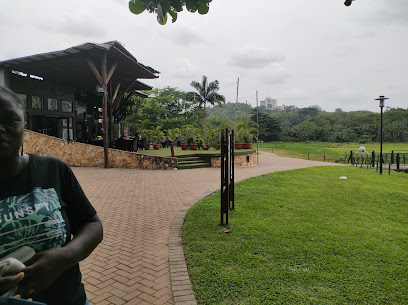
Dugbe market
Experience the vibrant culture and local flavors at Dugbe Market, Ibadan's bustling hub of commerce and community.
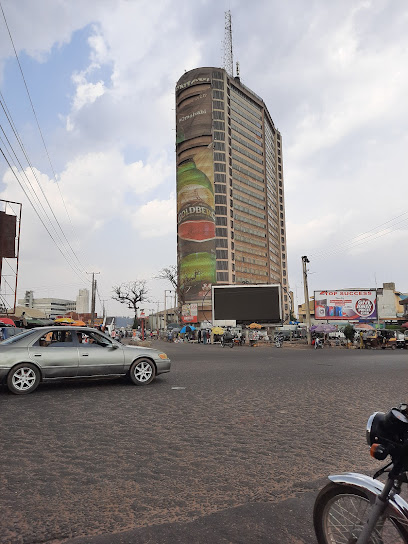
University of Ibadan, Zoological Garden
Experience the vibrant wildlife and serene beauty of the University of Ibadan Zoological Garden, a must-visit for nature lovers and families.
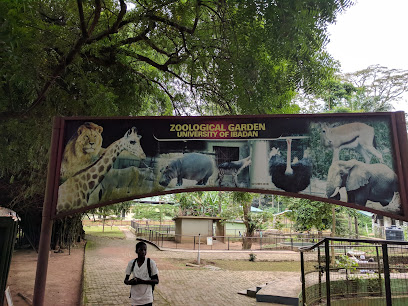
Trans-Amusement Park
Discover the vibrant attractions and serene landscapes of Trans-Amusement Park in Ibadan, a perfect getaway for fun and relaxation.
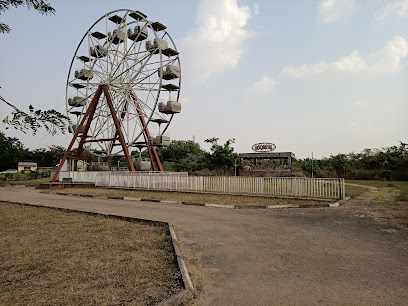
Lekan Salami Stadium
Experience the vibrant spirit of Nigerian sports culture at Lekan Salami Stadium, a premier venue in Ibadan for thrilling events and cultural festivities.
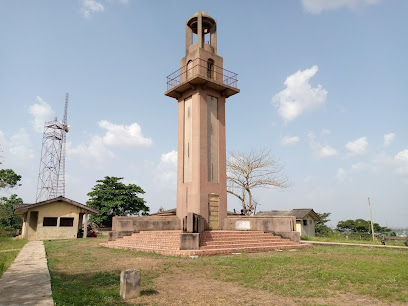
University of Ibadan
Explore the University of Ibadan, Nigeria's first university, and immerse yourself in an academic oasis rich in history and vibrant culture.
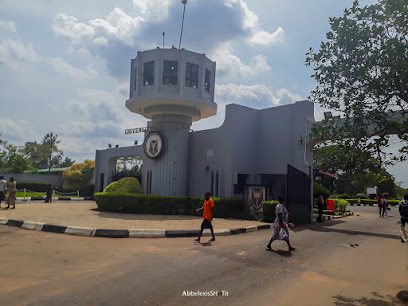
The Ventura Mall
Experience shopping, dining, and entertainment at the Ventura Mall, Ibadan's premier shopping destination for all ages.
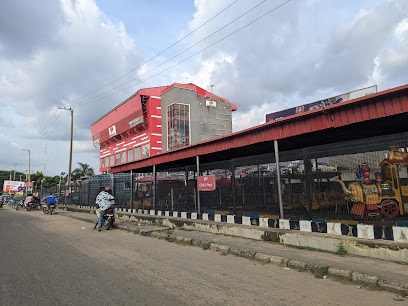
Ajimobi Motor Park
Experience the heart of Ibadan at Ajimobi Motor Park, your gateway to exploring the vibrant culture and transport options of Oyo State.
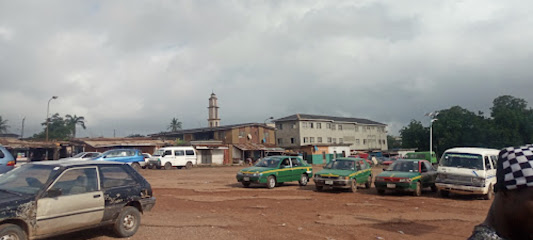
Gbagi Market
Discover the vibrant atmosphere of Gbagi Market in Ibadan, where local culture, delicious cuisine, and unique shopping experiences await you.
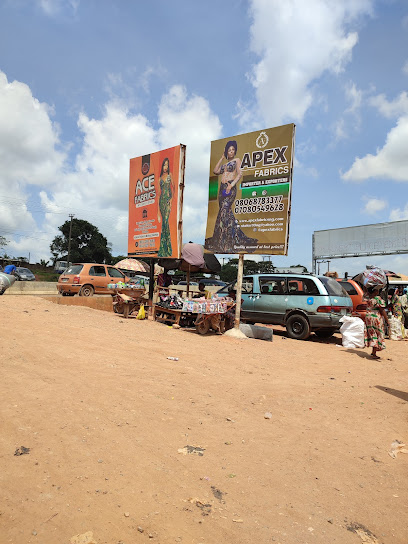
National Museum of Unity
Discover Nigeria's cultural heritage at the National Museum of Unity, where history and unity come alive through captivating exhibits and artifacts.
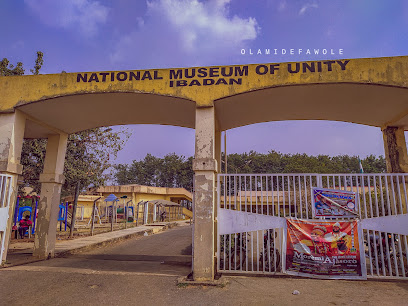
Bowers tower
Explore the breathtaking views and rich cultural heritage at Bowers Tower, a must-visit landmark in Ibadan, Nigeria.
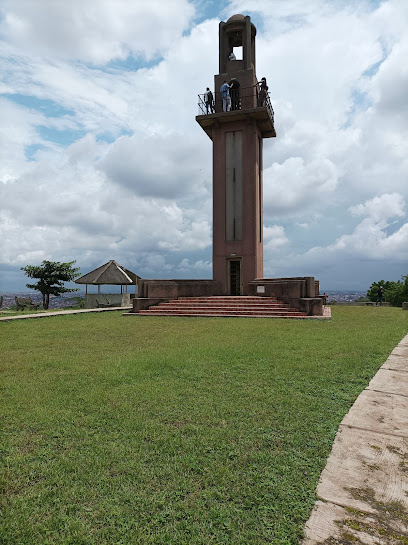
Oja Oba Market
Discover the lively Oja Oba Market in Ibadan, where local culture, fresh produce, and unique souvenirs await your exploration.
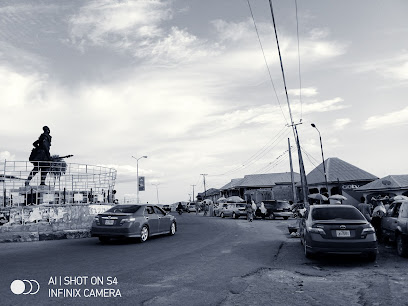
Idiarere
Discover Idiarere, a vibrant cultural landmark in Ibadan that offers a glimpse into Nigeria's rich history and local traditions.
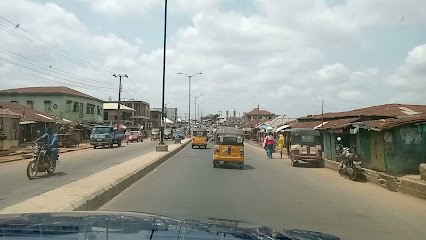
Mingles Resort
Discover the perfect blend of relaxation and entertainment at Mingles Resort in Ibadan, where every visit is a delightful escape.
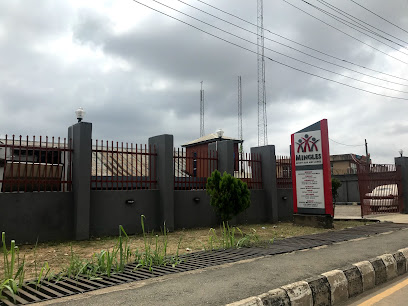
Link Majestic B2 Suites and Hotel
Discover comfort and convenience at Link Majestic B2 Suites and Hotel in Ibadan, your gateway to exploring Nigeria's vibrant culture.

Unmissable attractions to see
University of Ibadan, Zoological Garden
Experience the beauty of wildlife at the University of Ibadan Zoological Garden, a sanctuary for diverse species and a hub for conservation education.
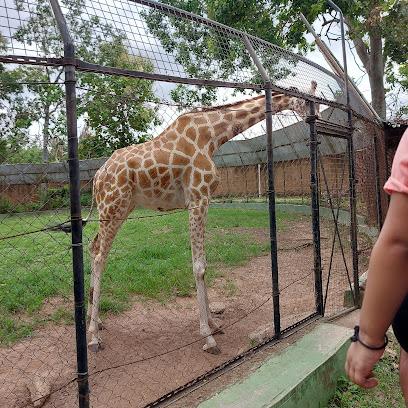
Trans-Amusement Park
Discover the excitement and joy of Trans-Amusement Park in Ibadan, a top destination for thrilling rides and family fun in Nigeria.
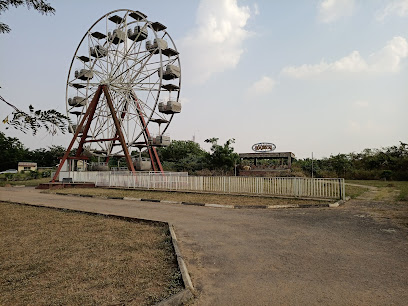
UI Botanical Garden
Explore the lush landscapes and diverse plant life at the UI Botanical Garden, a serene retreat in Ibadan, Oyo - perfect for nature lovers and cultural enthusiasts.
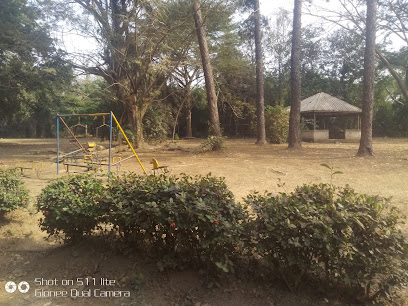
National Museum of Unity
Discover Nigeria's rich cultural heritage at the National Museum of Unity in Ibadan, where history and art come alive.
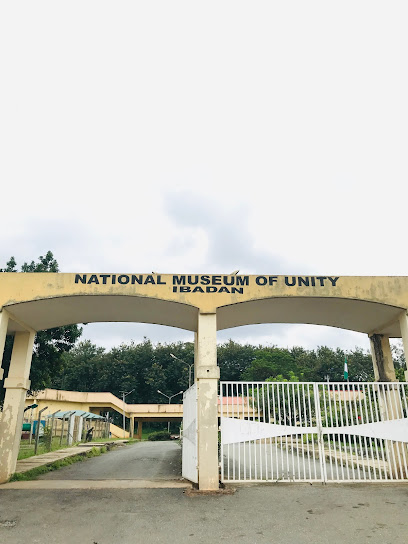
Bowers tower
Experience breathtaking views and rich history at Bowers Tower, a must-visit tourist attraction in Ibadan, Oyo State, Nigeria.
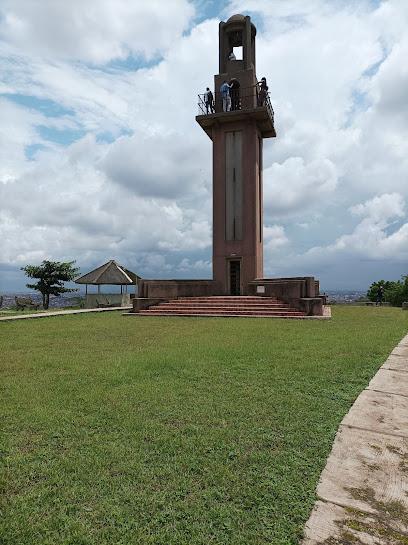
Magnus Paintball Game Arena
Unleash your adventurous spirit at Magnus Paintball Game Arena in Ibadan, where thrilling paintball battles await you amidst stunning surroundings.

Gamaliel Onosode Park Ibadan
Discover the serene beauty of Gamaliel Onosode Park in Ibadan, a perfect oasis for relaxation, recreation, and community gatherings amidst lush greenery.
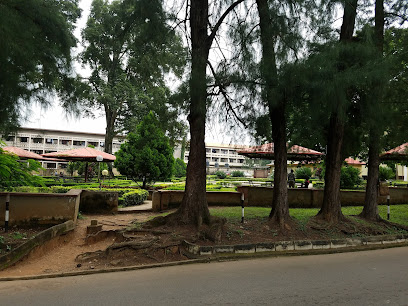
Zoological Musuem, University of Ibadan
Explore the Biodiversity of Nigeria at the Zoological Museum, University of Ibadan – A Journey Through Nature's Wonders.
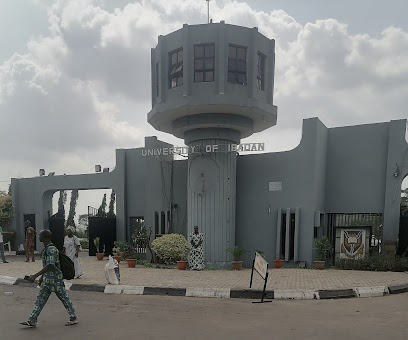
Oyo State Cultural Centre
Discover the vibrant cultural heritage of Oyo State at the Cultural Centre in Ibadan, a hub for art, history, and tradition.
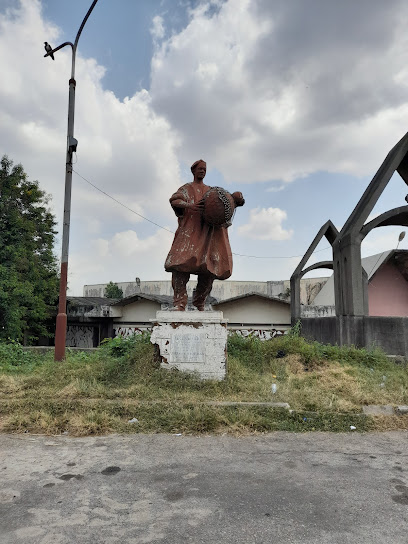
Topfat Art Gallery
Explore the vibrant art scene at Topfat Art Gallery in Ibadan, showcasing contemporary and traditional Nigerian art in a beautiful setting.

IITA Forest Center
Discover the IITA Forest Center, a serene park in Oyo, Nigeria, where lush greenery and biodiversity await your exploration.
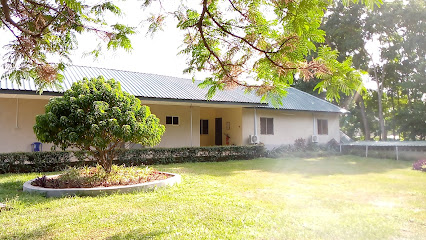
Dreamland Park
Experience the tranquility and beauty of Dreamland Park in Ibadan, a perfect getaway for nature lovers and families seeking relaxation.

Mellanby Water Fount
Explore the tranquility of the Mellanby Water Fount in Ibadan, a picturesque oasis perfect for relaxation and cultural appreciation.
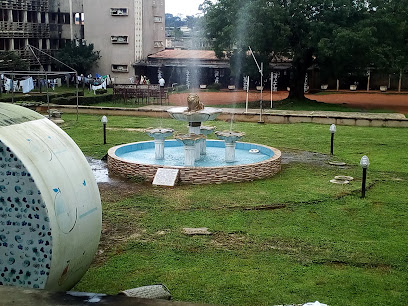
Odu'a Museum and Hall of Fame
Discover the cultural treasures of Yoruba heritage at Odu'a Museum and Hall of Fame in Ibadan, an enriching experience for every visitor.
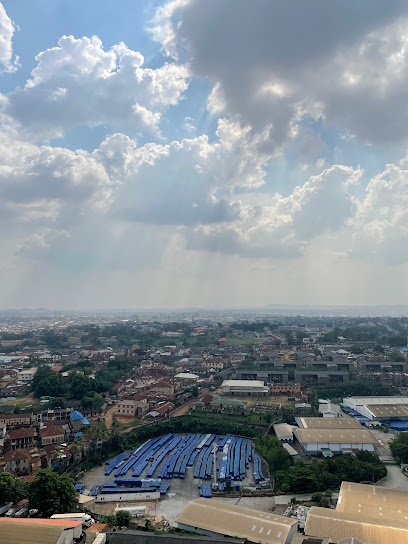
The JF Adeajayi Gardens, UI.
Explore the lush beauty of JF Adeajayi Gardens at the University of Ibadan, a tranquil haven perfect for relaxation and nature appreciation in Ibadan.
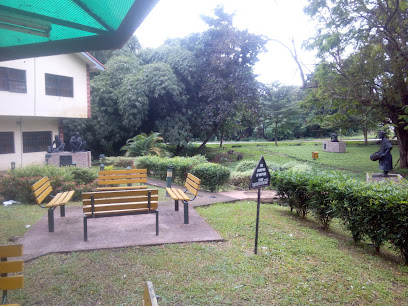
Essential places to dine
Ultima Restaurant, Bodija
Discover the vibrant flavors of Nigeria at Ultima Restaurant in Bodija - where local meets international cuisine in a welcoming setting.
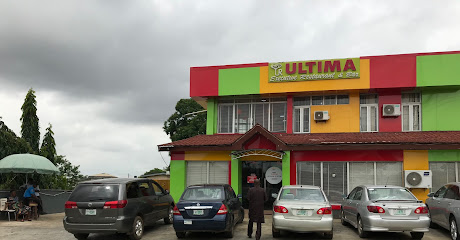
Tamberma Ibadan
Indulge in an authentic Indian dining experience at Tamberma Ibadan, where tradition meets flavor in every dish.
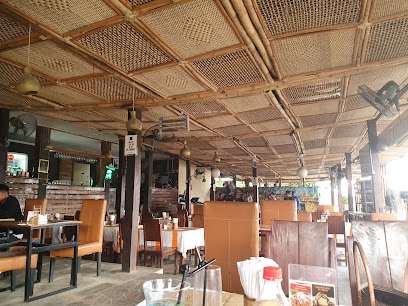
Ose Olorun Food Canteen (Amala Skye)
Discover authentic Yoruba cuisine at Ose Olorun Food Canteen in Ibadan—where every dish tells a story.
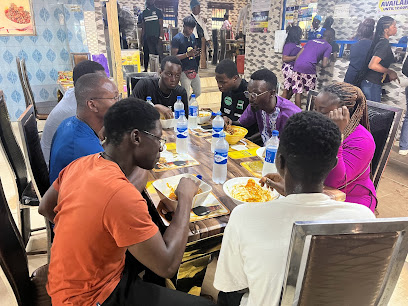
Latitude Café & Lounge
Experience the best of Ibadan's culinary scene at Latitude Café & Lounge - where every meal is a celebration of flavor and style.
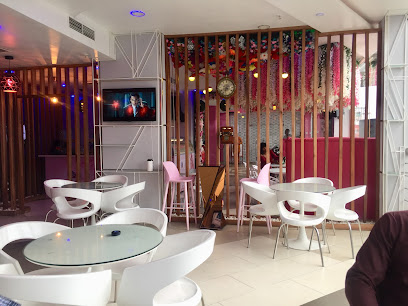
Marthas Kitchen
Savor the flavors of Ibadan at Martha's Kitchen—your go-to spot for delightful breakfasts and lunches in a cozy setting.
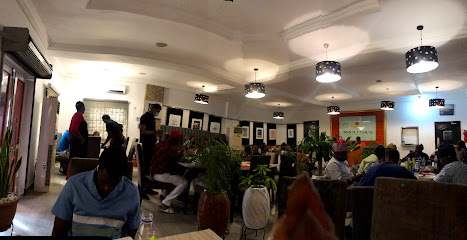
Mama Adija Eatables (Amala Spot)
Discover authentic Nigerian flavors at Mama Adija Eatables in Ibadan – home of exquisite Amala dishes and warm hospitality.
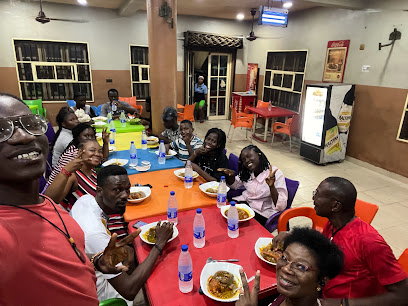
Kokodome Plus
Discover culinary delights at Kokodome Plus in Ibadan – where modern dining meets vibrant nightlife in a stunning Cocoa House setting.
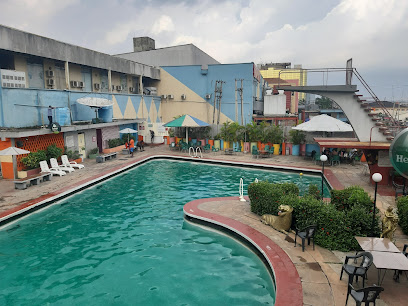
Stone Café Bar & Grill
Experience delightful cuisine with local flavors at Stone Café Bar & Grill in Oyo - a culinary gem for every traveler.
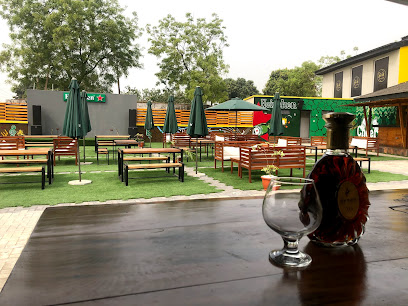
IBACHI - Ibadan Chinese Restaurant
Savor the authentic flavors of China at Ibachi - where tradition meets taste in the heart of Ibadan.
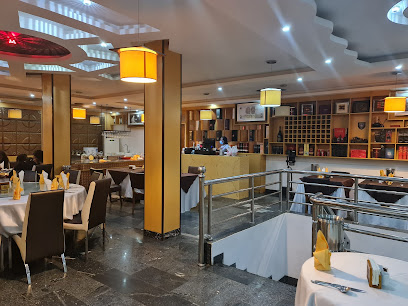
Café Chrysalis Old Bodija
Discover the flavors of Ibadan at Café Chrysalis Old Bodija—your go-to spot for breakfast and fast food delights.
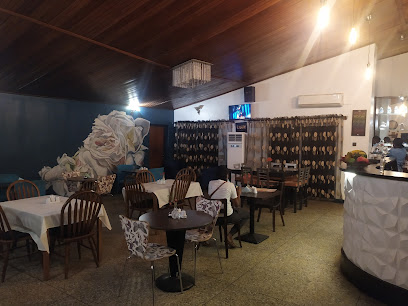
Mama Ope Restaurants
Experience the essence of Nigerian cuisine at Mama Ope Restaurants in Ibadan – where every meal tells a story.

Pleasure Summit Iyaganku Ibadan
Discover the culinary haven of Pleasure Summit Iyaganku in Ibadan – where local flavors meet global cuisine in an inviting atmosphere.
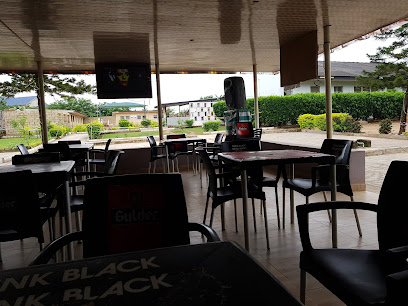
Ultima Restaurant And Lounge
Savor exquisite flavors at Ultima Restaurant & Lounge in Ibadan - where culinary excellence meets vibrant ambiance.
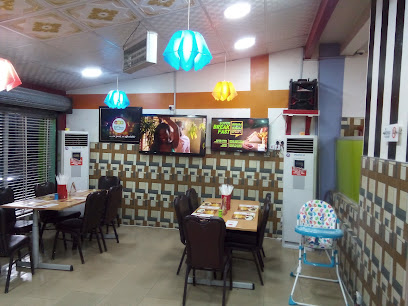
Cafe Chrysalis
Discover Cafe Chrysalis in Ibadan - your perfect breakfast retreat with delicious meals and inviting ambiance.
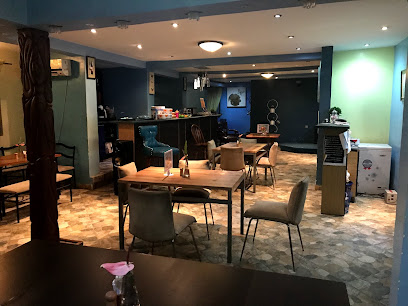
Five Continents
Discover diverse flavors at Five Continents in Ibadan – where culinary excellence meets cultural diversity in every dish.
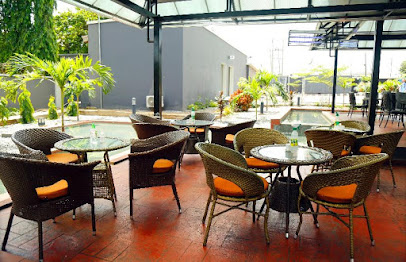
Markets, malls and hidden boutiques
VAT Home Of Fashion
Discover VAT Home of Fashion in Ibadan for a unique blend of stylish apparel and local groceries, celebrating Nigerian culture and creativity.
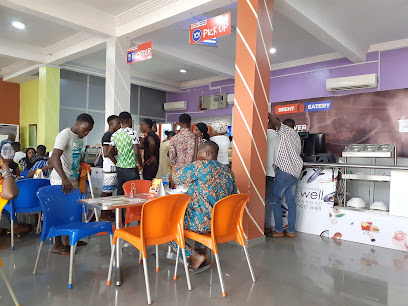
Lola's Hub - IYALAJE FOR FINE CLOTHES
Explore the vibrant fashion scene at Lola's Hub in Ibadan, where fine clothing meets exceptional style and local craftsmanship.
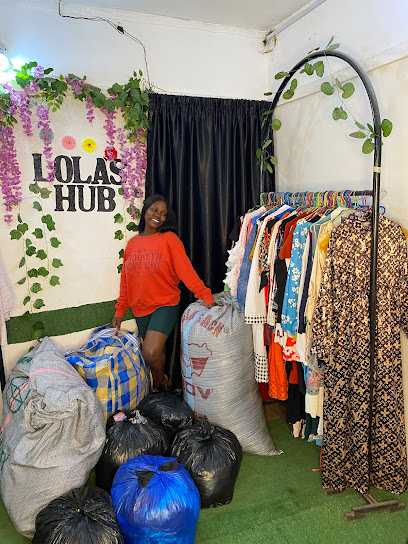
Ojayy Collections
Explore Ojayy Collections in Ibadan for a taste of local culture and fresh Nigerian produce, perfect for food enthusiasts and curious travelers.

Rubeeys Stores
Explore Rubeeys Stores in Ibadan for a vibrant selection of children's clothing, toys, and school supplies, creating joyful moments for families.
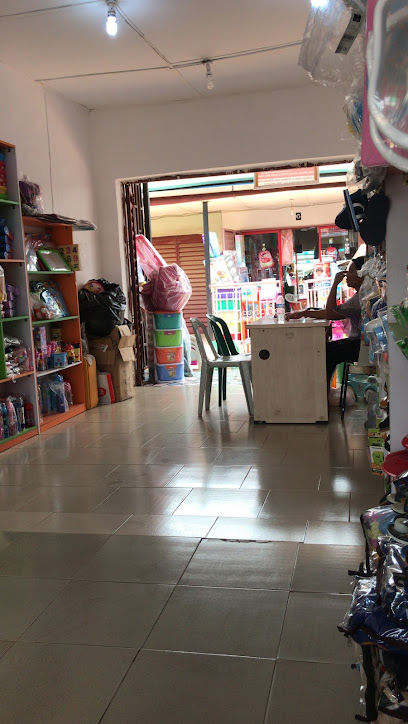
His Praise NG
Explore His Praise NG: A family-friendly outlet mall in Ibadan, Nigeria, combining shopping convenience with a welcoming atmosphere for all ages.
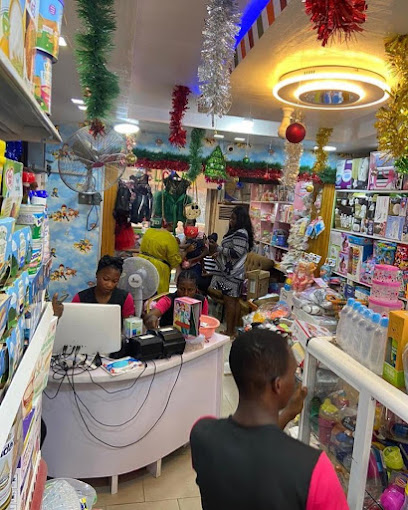
Loyabik Collections | Throwpillows and Customized gift items in Ibadan Nigeria
Explore Loyabik Collections for unique throw pillows and customized gifts—a true reflection of Nigerian craftsmanship and culture.
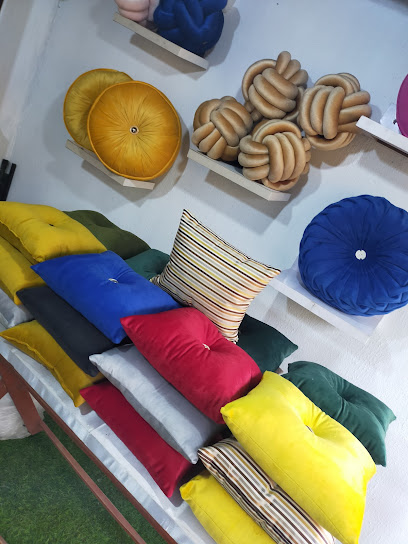
SHOP LUXURY WITH RICKY
Explore the unique blend of fashion and local culture at Shop Luxury with Ricky, Ibadan's top gift shop for stylish clothing and accessories.

The Girlfriend Store
Discover unique women's fashion and accessories at The Girlfriend Store in Ibadan, where local culture meets modern style.

Marisgold Unisex Boutique
Discover unique fashion at Marisgold Unisex Boutique, Ibadan's premier clothing destination for stylish apparel and accessories.
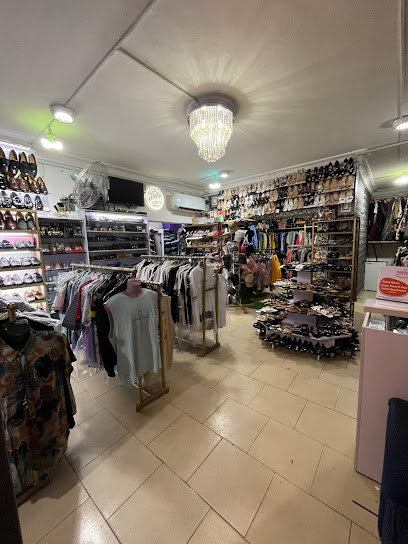
Vine Gifts
Explore Vine Gifts in Ibadan for unique souvenirs, exquisite perfumes, and elegant watches that celebrate Oyo's rich culture.
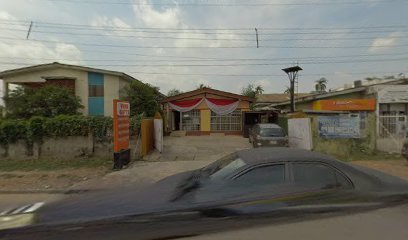
Shop
Explore Ibadan's vibrant clothing store, where traditional and contemporary fashion meet for an unforgettable shopping experience.

MISKAY
Discover unique clothing and accessories at MISKAY, Ibadan's premier boutique for trendy fashion that reflects local culture.
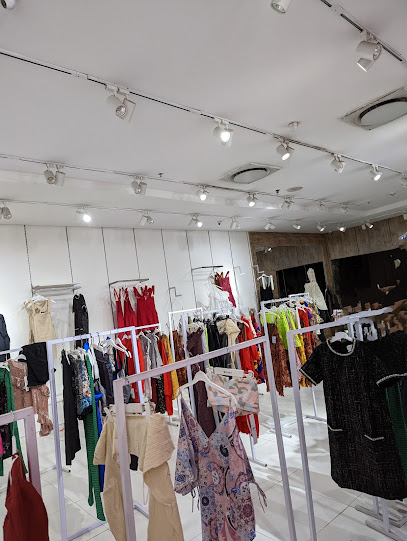
Kenzy Collectibles
Discover the vibrant fashion scene at Kenzy Collectibles in Ibadan, offering trendy apparel and unique local designs for every fashion enthusiast.
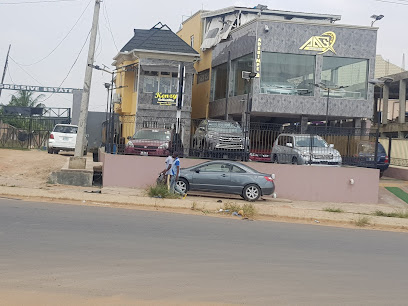
Hajia Rukzy
Discover unique fashion finds at Hajia Rukzy in Ibadan, offering a diverse range of clothing, accessories, and shoes for the entire family.

Sholly Rikky Beauty World
Discover local fashion and beauty at Sholly Rikky Beauty World in Ibadan, where style meets personal care in a vibrant boutique setting.

Essential bars & hidden hideouts
360 Lounge N Bar
360 Lounge N Bar in Ibadan offers a lively nightlife experience with crafted cocktails, delicious bites, and an inviting atmosphere for unforgettable moments.
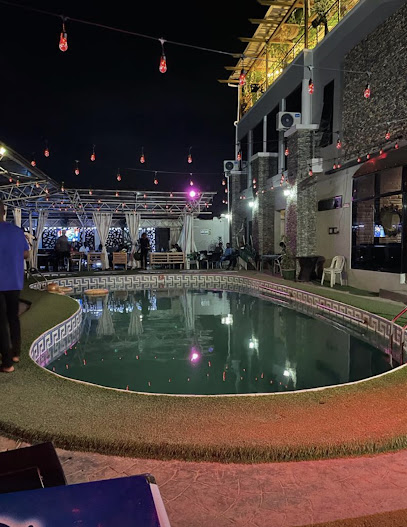
Sluggers Sports Bar & Lounge
Discover the vibrant nightlife of Ibadan at Sluggers Sports Bar & Lounge, where great food and dance await you in a lively atmosphere.
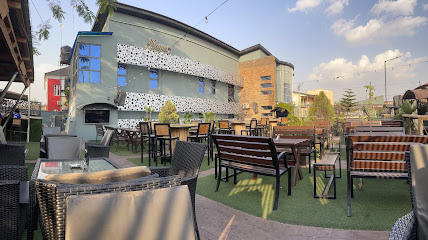
Pete's Bar
Discover the lively spirit of Ibadan at Pete's Bar, where chilled drinks and friendly faces await to make your night unforgettable.
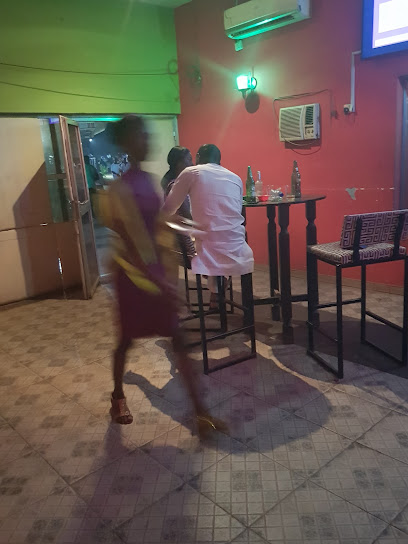
Mauve Lounge & Restaurant
Experience a dynamic blend of culinary delights and vibrant entertainment at Mauve Lounge & Restaurant in Ibadan, where every night is a celebration.
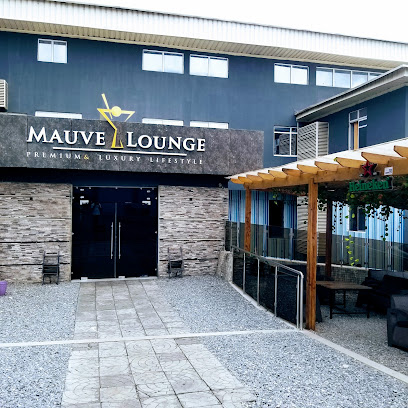
Greol Lounge and Bar
Discover Greol Lounge and Bar in Ibadan, where relaxation meets vibrant entertainment in a stylish setting.
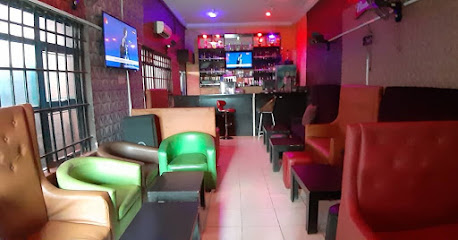
Eclipse Lounge And Bar
Discover Eclipse Lounge and Bar in Ibadan, where relaxation meets vibrant social energy in a serene atmosphere, perfect for unwinding with friends.
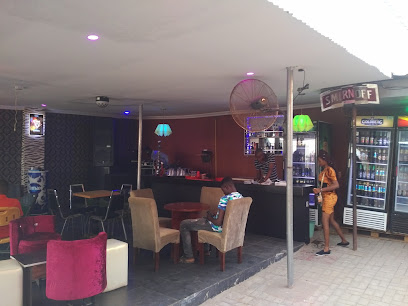
House 25
Experience the vibrant nightlife at House 25 in Ibadan, where great drinks, lively music, and a welcoming atmosphere await you.
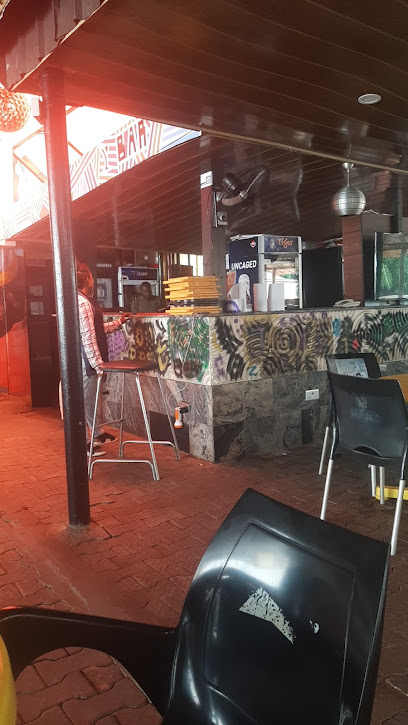
Infinities Lounge And Bar Oluyole Ibadan
Explore the vibrant atmosphere and refreshing drinks at Infinities Lounge and Bar, the ultimate relaxation spot in Oluyole, Ibadan.

Bayus cool spot
Experience the authentic taste of Nigerian grilled cuisine at Bayus Cool Spot in Ibadan's cultural heart.
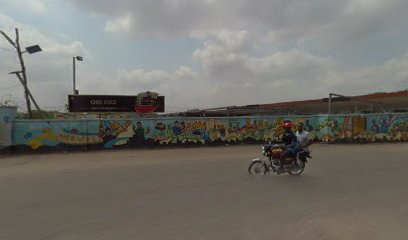
Apollo's Lounge & Bar
Discover the perfect blend of relaxation and entertainment at Apollo's Lounge & Bar, a top choice in Ibadan for an unforgettable night out.
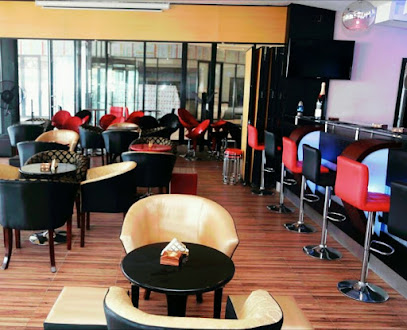
BRONZE LOUNGE bar & grill
Discover the vibrant flavors and lively atmosphere at Bronze Lounge Bar & Grill in Ibadan, a perfect retreat for food lovers and nightlife enthusiasts.
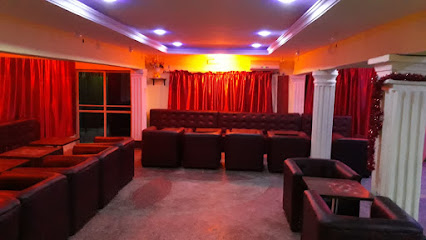
Gurgle Lounge & Bar
Experience the lively atmosphere of Gurgle Lounge & Bar in Ibadan, where great drinks and good company come together for unforgettable nights.
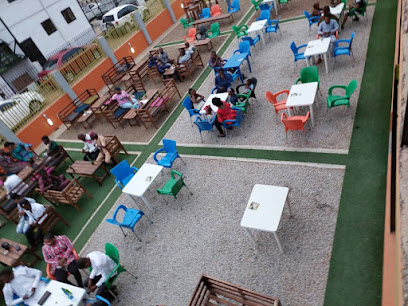
Zenith Lounge And Bar
Discover the vibrant nightlife at Zenith Lounge And Bar in Ibadan, where delicious food and refreshing drinks create an unforgettable experience.

Club 360 Lounge And Bar
Discover the lively nightlife of Ibadan at Club 360 Lounge And Bar, where drinks flow and good times abound in a vibrant setting.

Local Phrases
-
- HelloBawo ni
[ba-woh nee] - GoodbyeOdabo
[oh-dah-boh] - YesBe
[beh] - NoBee
[bee] - Please/You're welcomeKíndẹ́
[keen-deh] - Thank youẸ se
[eh sheh] - Excuse me/SorryẸ pẹ
[eh-peh] - How are you?Bawo lẹ wá?
[ba-woh leh wah] - Fine. And you?Dàárọ, èmi náà?
[dah-ah-roh, eh-mee nah] - Do you speak English?Sé ń sọ ede Gẹẹsì?
[sheh in soh eh-deh geh-see] - I don't understandKò ní rí
[koh nee ree]
- HelloBawo ni
-
- I'd like to see the menu, pleaseMò fẹ́ ránṣẹ́ mẹnu, dáadáa
[mo feh ran-sheh meh-noo, dah-dah] - I don't eat meatMò kìí gbé ẹran
[mo kee gbeh eh-rah] - Cheers!Ẹyin abẹ
[eh-yin ah-beh] - I would like to pay, pleaseMò fẹ́ fúnra, dáadáa
[mo feh foon-rah, dah-dah]
- I'd like to see the menu, pleaseMò fẹ́ ránṣẹ́ mẹnu, dáadáa
-
- Help!Ɔ tó
[oh toh] - Go away!Lọ sọrọ!
[loh soh-roh] - Call the Police!Wọọ fọọsì!
[woh foh-shee] - Call a doctor!Wọọ dọ́kítà!
[woh doh-kee-tah] - I'm lostMo lọ̀rí
[mo loh-ree] - I'm illMó ò ní lẹ́rò
[moh oh nee leh-roh]
- Help!Ɔ tó
-
- I'd like to buy...Mò fẹ́ ní wọlé...
[mo feh nee woh-leh] - I'm just lookingMo ta ní ṣe
[mo tah nee sheh] - How much is it?Bẹ́ẹ̀ ni káàá
[beh-eh nee kahh] - That's too expensiveYẹ́ẹ̀kú tó wọlé
[yeah-koo toh woh-leh] - Can you lower the price?Sé O le kí àárò?
[sheh oh leh kee ah-rah-woh]
- I'd like to buy...Mò fẹ́ ní wọlé...
-
- What time is it?Kí àkókò n wá?
[kee ah-ko-ko en wah] - It's one o'clockỌkan wá
[oh-kahn wah] - Half past (10)Méjì tí ọkan
[meh-jee tee oh-kahn] - MorningỌ̀rọ̀
[oh-roh] - AfternoonỌ̀sán
[oh-sahn] - EveningỌ̀ṣẹ̀
[oh-sheh] - YesterdayNí irọ
[nee ee-roh] - TodayNí yí
[nee yee] - TomorrowNí ọ̀la
[nee oh-lah] - 1Ọkan
[oh-kahn] - 2Meji
[meh-jee] - 3Mẹta
[meh-tah] - 4Mẹrin
[meh-reen] - 5Marun
[mah-roon] - 6Mefa
[meh-fah] - 7Mẹfà
[meh-fah] - 8Mẹfẹ
[meh-feh] - 9Mọkànlá
[moh-kahn-lah] - 10Mẹwàá
[meh-wahh]
- What time is it?Kí àkókò n wá?
-
- Where's a/the...?Ṣé ń wọlé...
[sheh in woh-leh] - What's the address?Kíni àdírẹsì?
[kee-nee ah-dee-reh-shee] - Can you show me (on the map)?Sé O le fún mi (lọ sí àkọsílẹ)?
[sheh oh leh foon mee loh see ah-ko-see-leh] - When's the next (bus)?Ní bẹ̀ẹ̀ n wá ìdá...
[nee beh-eh en wah ee-dah] - A ticket (to ....)Ìwe kọọda (lọ sí ....)
[ee-weh kohh-dah loh see]
- Where's a/the...?Ṣé ń wọlé...
History of Ibadan
-
Ibadan was founded in 1829 as a war camp for warriors coming from different Yoruba communities. It quickly grew into a major center for trade and military strategy. The city's name, 'Eba Odan,' translates to 'by the edge of the meadow,' reflecting its geographic location.
-
Ibadan played a significant role during the Yoruba Wars in the 19th century. It became a refuge for displaced people and a powerhouse for military campaigns against neighboring kingdoms. The city’s warriors were instrumental in various battles, including the Kiriji War, which lasted from 1877 to 1893.
-
In 1893, Ibadan came under British control, marking the beginning of its colonial history. The British administration developed the city’s infrastructure, establishing schools, hospitals, and other public services. This period saw significant urban and social transformation.
-
In 1948, the University of Ibadan was established, originally as a college of the University of London. It became an independent university in 1962 and has since grown into one of Africa's premier educational institutions. The university has produced numerous notable alumni who have made significant contributions to various fields.
-
Ibadan played a crucial role in Nigeria’s journey to independence. In 1952, it became the capital of the Western Region, one of the country’s three regions before independence. The city was a hub for nationalist activities and political movements that eventually led to Nigeria’s independence in 1960.
-
In 1964, the Agodi Gardens Massacre occurred, a tragic event where a confrontation between the police and protesters led to the deaths of many. This event is remembered as a significant moment in the city’s history, reflecting the political tensions of the time.
-
Post-independence, Ibadan continued to grow economically and culturally. It became known for its vibrant markets, such as the Bodija Market, and its contributions to Nigerian literature and arts. The city is home to several cultural festivals and events that celebrate Yoruba traditions and modern Nigerian culture.
Ibadan Essentials
-
Ibadan is well-connected by road, air, and rail. The nearest international airport is Murtala Muhammed International Airport in Lagos, approximately 130 kilometers away. From Lagos, you can take a domestic flight to Ibadan Airport, which is located about 20 minutes from the city center. Alternatively, you can travel by road; buses and taxis operate frequently between Lagos and Ibadan, with the journey taking around 2-3 hours. The Nigerian Railway Corporation also offers train services from Lagos to Ibadan, providing a scenic route.
-
Within Ibadan, you have several transportation options including taxis, ride-hailing services like Uber and Bolt, and public buses known as 'danfos'. Motorcycles (okada) and tricycles (keke) are also common for shorter trips. For a more local experience, try using the BRT (Bus Rapid Transit) system which connects various parts of the city. Car rentals are available but driving can be challenging due to traffic and road conditions.
-
The official currency in Nigeria is the Nigerian Naira (NGN). Credit and debit cards are widely accepted in hotels, restaurants, and larger shops, but it's advisable to carry cash for smaller transactions and in local markets. ATMs are widely available throughout the city. Foreign exchange services are also available at banks and dedicated exchange offices.
-
Ibadan is generally safe for tourists, but it's important to take standard precautions. Avoid isolated areas and be cautious when walking alone at night. Areas like Agbowo, Ojoo, and Beere have higher crime rates and should be avoided, especially after dark. Always keep an eye on your belongings in crowded places and be cautious when using ATMs.
-
In case of emergency, dial the national emergency number 112. For medical emergencies, University College Hospital (UCH) in Ibadan is a well-equipped medical facility. Police stations are scattered across the city, and it's advisable to know the location of the nearest one to your accommodation. Travel insurance covering medical emergencies is highly recommended.
-
Fashion: Do dress modestly, especially when visiting religious sites. Avoid overly revealing clothing. Religion: Do respect local customs and religious practices. Christianity and Islam are the dominant religions, and it's courteous to follow their practices when visiting places of worship. Public Transport: Do be respectful and patient. Public buses can be crowded and chaotic. Greetings: Do greet people warmly. A handshake with a smile is common. Eating & Drinking: Do try local dishes like Amala and Ewedu. Don’t refuse food if offered, as it may be considered impolite.
-
To experience Ibadan like a local, visit the Agodi Gardens for a relaxing day out. Explore the bustling Dugbe Market for a variety of goods and local crafts. Engage with locals; they are generally friendly and willing to share insights about their culture and heritage. Don’t miss out on tasting local delicacies at popular spots like Mama Ope and Skye Longe. For a cultural experience, visit the University of Ibadan and the Cocoa House.
Trending Landmark in Ibadan
Nearby Cities to Ibadan
-
Things To Do in Abeokuta
-
Things To Do in Lagos
-
Things To Do in Porto-Novo
-
Things To Do in Cotonou
-
Things To Do in Benin City
-
Things To Do in Ouidah
-
Things To Do in Lokossa
-
Things To Do in Warri
-
Things To Do in Aneho
-
Things To Do in Notse
-
Things To Do in Atakpamé
-
Things To Do in Asaba
-
Things To Do in Lomé
-
Things To Do in Onitsha
-
Things To Do in Kpalimé










